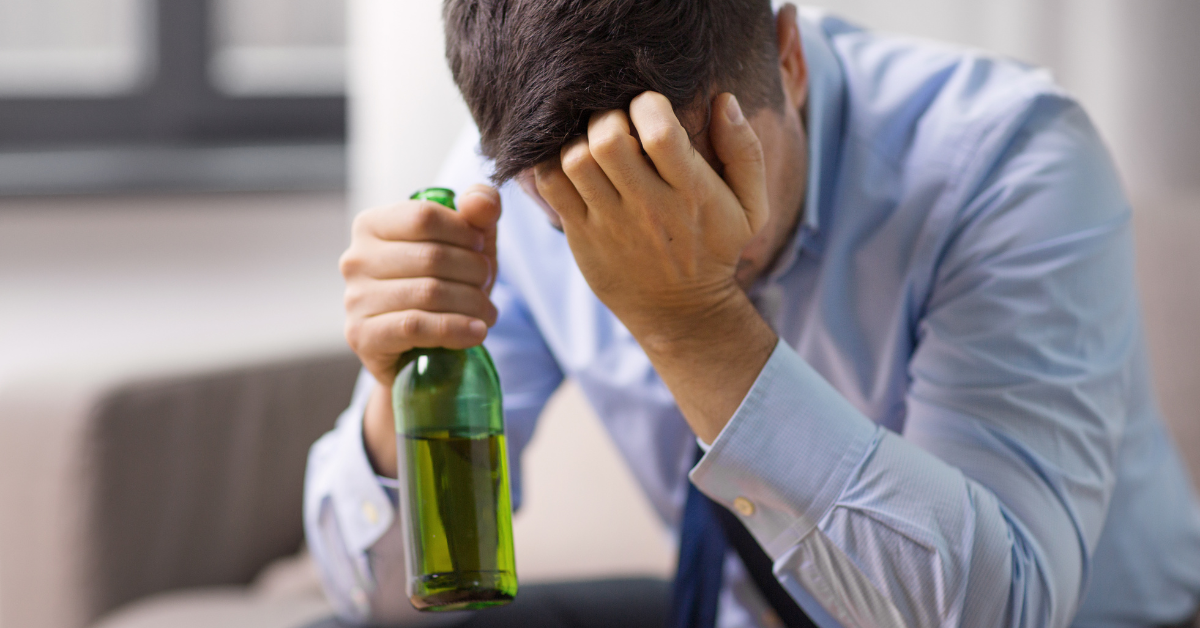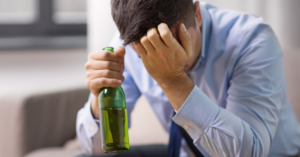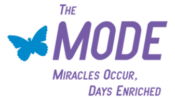
Recognizing The Signs Of Alcohol Abuse
Alcohol abuse remains a huge public concern, despite the growing popularity of sober trends such as Dry January or the “Sober Curious” movement where people are trying to drink less alcohol or none at all.
According to the National Institute of American NIAA, there is a huge percentage of adults who struggle with an unhealthy level of alcohol consumption every day.
Early recognition of signs of alcohol abuse can lead to timely intervention and support, facilitating a path toward recovery and improved overall well-being. Before we identify the sins of alcohol abuse, we must first understand what it is.
What Is Alcohol Abuse?
Alcohol abuse, also known as alcohol misuse, is a pattern of drinking that leads to harmful consequences or impacts a person’s ability to function effectively in daily life.
It involves excessive and irresponsible consumption of alcohol that can result in physical, psychological, social, or legal problems.
Signs of Alcohol Abuse
The signs of alcohol abuse can vary between mix of changes in behavior to physical changes. These tell-tale warning signs include:
- Drinking excessively and frequently, beyond moderate levels
- Neglecting responsibilities at work, school, or home due to drinking
- Engaging in risky behaviors while intoxicated, such as driving under the influence
- Experiencing relationship problems or conflicts related to alcohol use
- Developing a tolerance to alcohol, requiring increasing amounts to achieve the desired effect
- Experiencing withdrawal symptoms when not drinking, such as tremors, sweating, or anxiety
- Changes in physical appearance such as weight loss/gain, poor hygiene or redness the face
Consequences of Alcohol Abuse
Alcohol abuse can result in serious consequences, with some even being life-threatening if the level of drinking is extreme. Some of these consequences include:
- Increased risk of accidents, injuries, or violence
- Impaired judgment and decision-making abilities
- Liver damage and other health problems, such as cardiovascular issues or digestive disorders
- Mental health issues, including depression, anxiety, or memory impairment
- Legal problems, such as DUI (driving under the influence) charges or legal sanctions related to alcohol-related offenses
If left untreated, Alcohol Abuse can lead to Alcoholism, which is when a person develops a physical or emotional addiction to alcohol. They become addicted.
Treatment For Alcohol Abuse
Treatment options for alcohol abuse may include counseling, behavioral therapies, support groups like Alcoholics Anonymous (AA), and medical interventions to address underlying issues and promote healthier drinking behaviors.
Early intervention is key to preventing the progression of alcohol abuse to more severe forms of alcohol use disorder (AUD) and minimizing its negative impact on one’s life and health.
Contact The MODE For Help
If you suspect that you or someone you know may be struggling with alcohol abuse, seeking professional help right away is crucial to preventing symptoms and bad outcomes from escalating.
At The MODE – Addiction Treatment Center in Akron, OH, we have licensed counselors that specialize is chemical dependencies such as alcohol that can help asses the level of care needed and recommend one of our treatment programs.

How Mental Health Issues Can Lead to Substance Abuse
Mental health issues, also known as mental health disorders, can include a wide range of conditions that affect a person’s mood, thinking, and behavior. When left untreated, they can lead to those individuals abusing substances and developing what is called a Substance Use Disorder (SUD). This phenomenon is often referred to as “self-medication,” where individuals use substances such as drugs and alcohol to alleviate or cope with the symptoms of their mental health condition. Here are some situations in which untreated mental health issues can lead to substance abuse: Symptom Relief People with mental health disorders, such as depression, anxiety, PTSD, or bipolar disorder, might turn to substances in an attempt to manage or temporarily relieve their symptoms. For example, someone with anxiety might use alcohol to calm their nerves, while someone with depression might use stimulants to feel more energetic. Emotional Escape Substances can provide a temporary escape from emotional pain or distress. Individuals struggling with overwhelming feelings might use drugs or alcohol to numb their emotions or avoid dealing with their problems. Social Factors Mental health disorders can lead to social isolation or difficulties in social interactions. Some individuals might use substances to feel more comfortable in social settings or to fit in with peers who are also using substances. Reward System Mental health disorders can disrupt the brain’s reward system, making it more difficult for individuals to experience pleasure from everyday activities. Substances can artificially stimulate the brain’s reward pathways, providing a sense of pleasure or euphoria that might be lacking in their daily lives. Lack of Access to Treatment In some cases, individuals might not have access to appropriate mental health treatment or might not seek help due to stigma or other barriers. As a result, they might turn to substances as a way to self-manage their symptoms. Getting Help Is Essential Unfortunately, while substances might provide temporary relief, they often exacerbate mental health symptoms in the long run and can lead to substance use disorder. This creates a vicious cycle where the mental health condition and substance use disorder feed into each other, making both conditions more challenging to treat. Effective treatment for individuals with both mental health disorder and substance use disorder requires an integrated approach that addresses both simultaneously. Comprehensive care, including behavioral therapies, medication-assisted treatment, and support groups, can help individuals break the cycle and achieve lasting recovery. Treatment at The MODE If you or someone you know is currently using substances as well as struggling with their mental health, it’s important to reach out for professional help sooner rather than later to prevent the development of a co-occuring disorders. The MODE – Addiction Treatment Center in Akron, has licensed counselors who can provide you or your loved one with a clinical assessment to help diagnose a condition and recommend the best course of action. With decades of experience (both lived and helped), our support staff are unlike any other in the Akron metro area. Contact us to talk with one of our recovery experts and start getting the help you deserve today.

Recognizing The Signs Of Alcohol Abuse
St. Patrick’s Day is traditionally associated with lively celebrations and merriment often involving alcohol. However, for individuals choosing to abstain from drinking, there are numerous ways to partake in the festivities while maintaining sobriety.

Celebrating St. Patrick’s Day Without Alcohol
St. Patrick’s Day is traditionally associated with lively celebrations and merriment often involving alcohol. However, for individuals choosing to abstain from drinking, there are numerous ways to partake in the festivities while maintaining sobriety.
